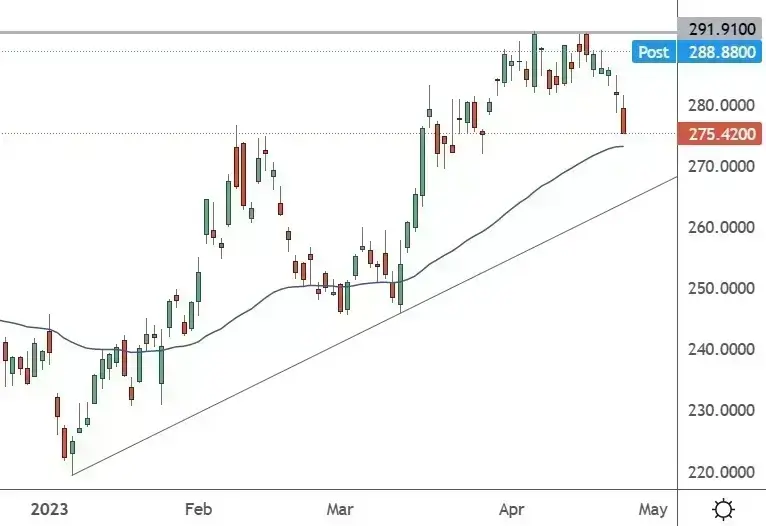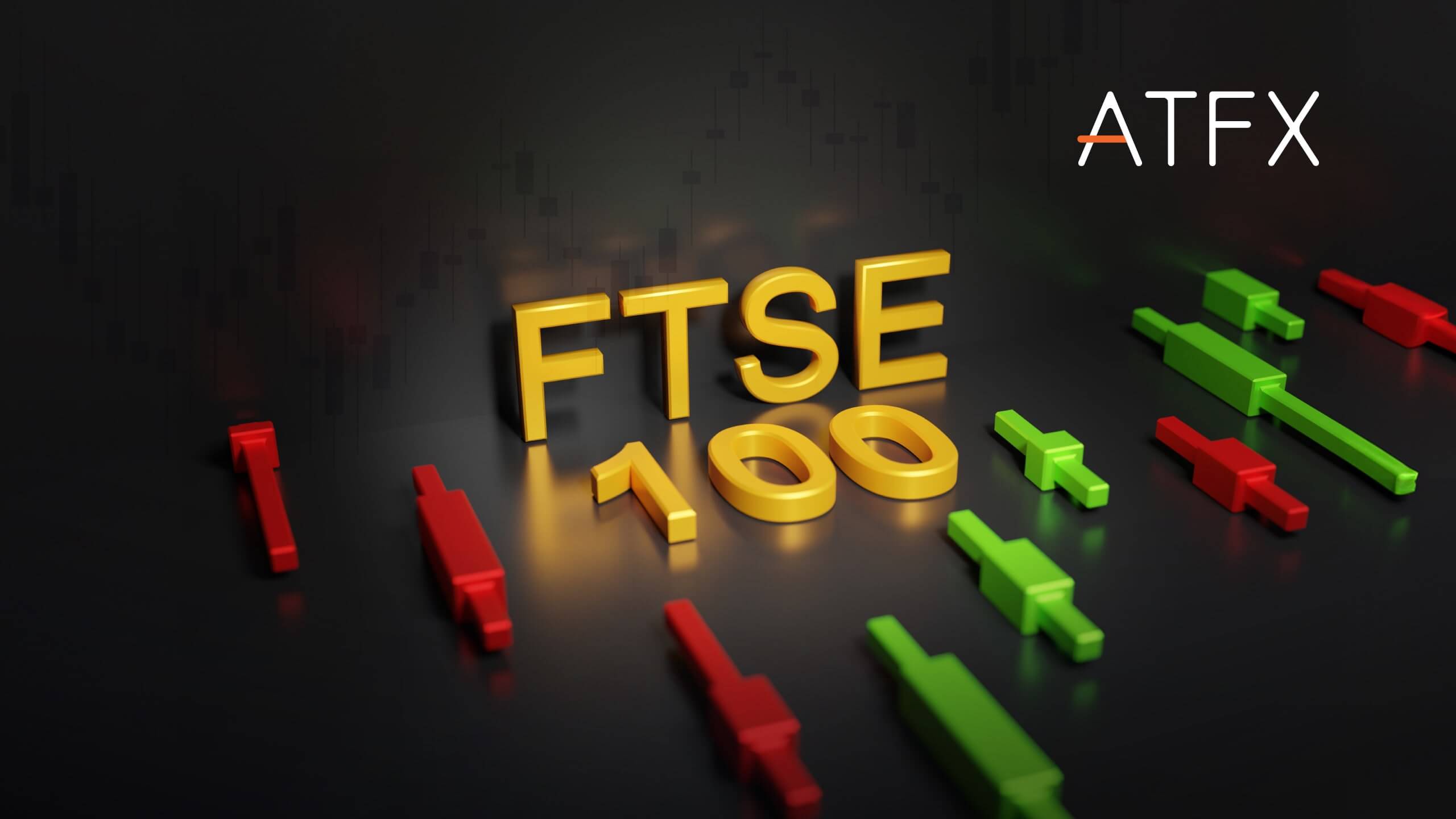Microsoft (MSFT) shares jumped in after-hours trading to reverse earlier losses after strong gains in its cloud revenue. The latest earnings could boost markets after a bearish day on banking news.

MSFT – Daily Chart
The price of MSFT shares closed down 2.75% on the day but jumped around 5% after the earnings release. That brings the price close to the previous resistance around the $290 level, and traders can focus on that level for the path ahead.
Profits were $2.45 per share, beating Wall Street estimates for $2.23 per share, and were 10% higher than a year ago. That was a good performance as the big tech industry struggles with currency headwinds and slowing ad spending in the global economic downturn.
Microsoft Reports Strong Cloud Revenue
Revenue increased by 7% to $52.9 billion in the quarter to March, beating estimates of $51.02 billion. The software and cloud computing services drive Microsoft sales, despite the hype over its partnership with ChatGPT creator OpenAI.
The company did say that search revenues were 10% higher, but the personal computing segment was still lower. Microsoft is advancing toward the business of AI by integrating similar tools into its cloud computing and software products. Analysts hope it can add to corporations’ recent bullish momentum in cloud computing adoption.
Wedbush analyst Dan Ives said that 37% y-o-y gains in the Azure cloud were a “flex the muscles moment” for Microsoft and its CEO Satya Nadella.
Analysts were expecting a gloomier release due to the economy’s effect on PC sales and company spending. The sales drop in computing products was less severe than analysts had expected, with revenue of $13.3 billion versus analyst estimates of $12.19 billion.
The market was lower for U.S. stocks today after First Republic Bank fell to new all-time lows. The company announced on Monday that it lost 40% of its banking deposits during the Silicon Valley Bank contagion.
Traders can look for a breakout in MSFT above the $290 level, but some caution would be advised on the regional bank concerns.


